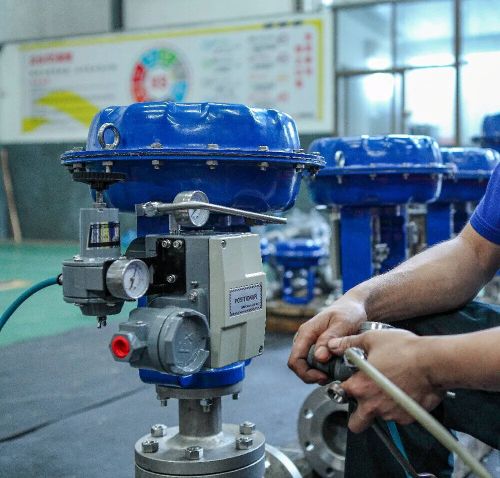


Steam Jacketed Control Valves for Temperature-Sensitive Applications
Steam Jacketed Control Valves: Essential for Temperature-Sensitive Industrial Processes
Steam jacketed control valves are vital components in industries where temperature control is crucial for ensuring smooth processing, product quality, and operational efficiency. These valves are specifically designed to maintain a consistent temperature of fluids during processing, preventing issues like crystallization, viscosity changes, or solidification. Such processes are common in industries like food processing, petrochemicals, and chemical manufacturing, where precise temperature control is essential for the desired flow and product characteristics.We are a leading control valve manufacturer in China, providing high-quality valves and control actuators designed to meet a wide range of industrial requirements.
In many industrial processes, fluids need to be kept within a specific temperature range to maintain their desired properties. If the temperature drops too quickly, the fluid may undergo changes such as increased viscosity, crystallization, or solidification, which can cause blockages, reduce flow rates, and lead to equipment failures. Steam jacketed control valves help prevent these problems by ensuring that the fluid remains at the optimal temperature throughout the process.
These valves are designed with a double-walled structure where the outer shell is filled with steam. The steam in the jacket circulates around the valve, providing heat to prevent the fluid from cooling too rapidly. This consistent heating ensures that the fluid remains in its desired state, which is essential in preventing undesirable physical changes like clogging or solidification.
The steam jacketed control valve operates by circulating steam through the outer jacket that surrounds the valve body. The continuous flow of steam helps maintain the fluid’s temperature, preventing it from dropping below a critical point. The valve uses an actuator and positioner to precisely control the flow of the fluid while ensuring that the temperature stays within the desired range.
The steam in the jacket acts as a heat exchanger, providing a steady supply of thermal energy to the fluid. This helps in processes where temperature fluctuations could disrupt flow or cause the fluid to solidify. Steam jacketed valves are constructed with durable, corrosion-resistant materials to handle the high-pressure steam and harsh industrial environments.
In the food processing industry, ingredients like oils, sugars, and fats can easily become too thick or solidify if exposed to rapid temperature changes. Steam jacketed control valves ensure that these materials remain at the correct temperature, preventing solidification and ensuring consistent processing.
The petrochemical industry uses steam jacketed control valves to keep substances like waxes and oils from cooling too quickly, preventing them from becoming too viscous or solidifying. This ensures efficient transport and processing of these materials.
In chemical manufacturing, maintaining the right temperature is essential to avoid changes in viscosity or chemical composition. Steam jacketed control valves ensure the materials remain within the required temperature range to promote the desired chemical reactions, preventing process disruptions.
Prevents Flow Disruptions: By ensuring the fluid remains at the correct temperature, steam jacketed control valves prevent blockages and ensure smooth flow in the system.
Improves Operational Efficiency: Maintaining a consistent temperature helps reduce the need for maintenance and decreases downtime due to temperature-related issues.
Enhances Product Quality: In industries like food processing, precise temperature control ensures the quality of the final product, meeting industry standards.
Steam jacketed control valves are indispensable in industries where temperature-sensitive processes are critical. By preventing unwanted changes in the temperature of fluids, these valves help improve efficiency, reduce downtime, and maintain high product quality. Whether in food processing, petrochemical, or chemical manufacturing, they play a key role in ensuring optimal conditions for fluid handling and processing.
